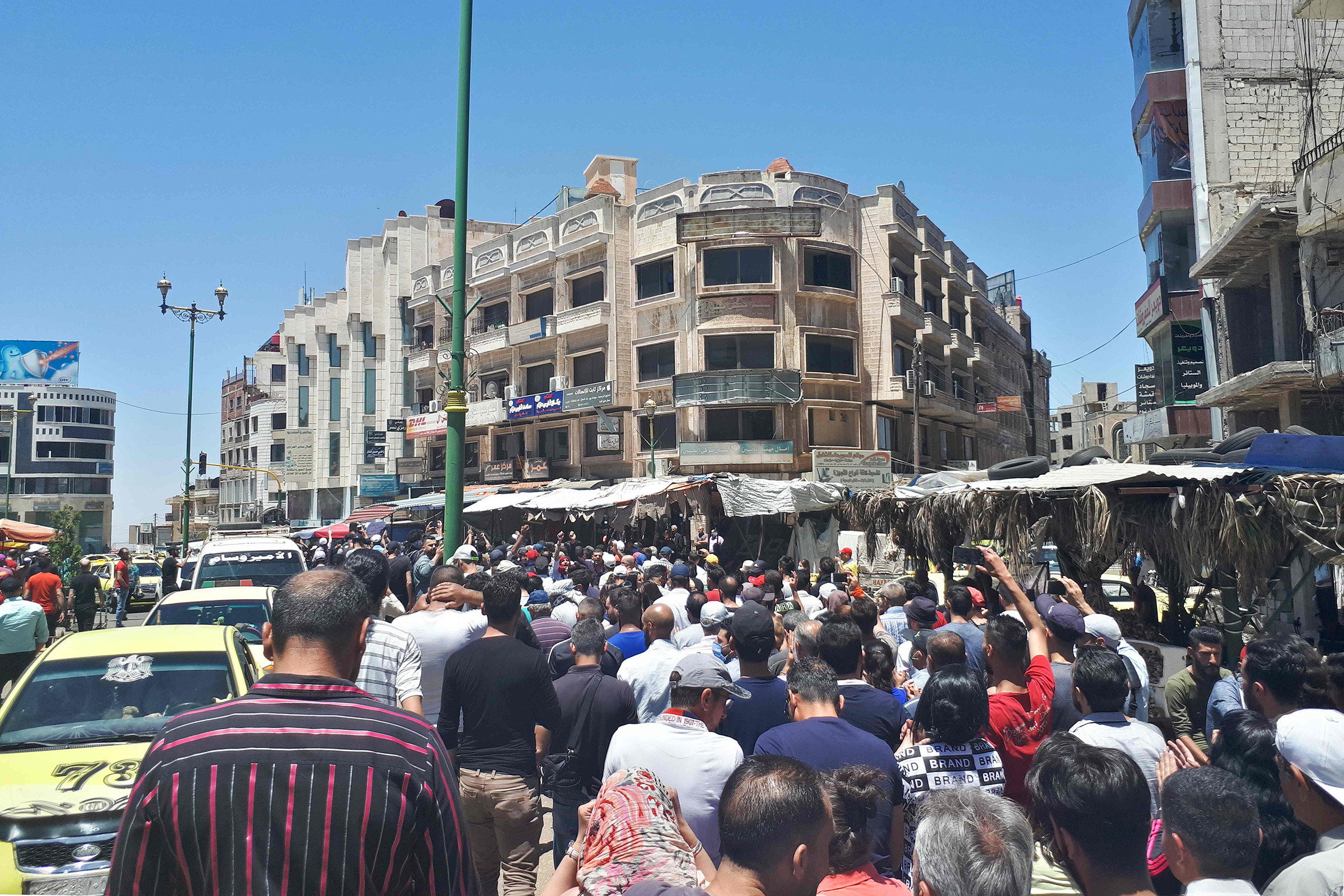Stunning Rebel Advance in Syria: Assad's Regime on the Brink of Collapse?
The Syrian conflict has taken a dramatic turn, with a lightning-fast offensive by anti-government forces leaving President Bashar al-Assad's regime teetering on the brink of collapse. In a stunning display of military prowess, rebel groups have captured multiple major cities in a matter of days, prompting speculation about the future of the Syrian government and the potential implications for regional stability.
The Rebel Offensive: A Decade in the Making
The current offensive, which began in late November, marks a significant escalation in the decade-long Syrian civil war. After a period of relative dormancy, anti-government fighters launched a surprise attack, swiftly seizing control of key cities like Aleppo and Hama. This rapid advance has been fueled by several factors, including the weakening of Assad's allies and the internal vulnerabilities of the regime itself. U.S. officials have even suggested that Assad's regime could collapse within days.
Weakening of Assad's Allies
The advance has been facilitated by the significant weakening of Assad's key allies, particularly Russia. National Security Adviser Jake Sullivan stated that Russia, bogged down in a protracted war in Ukraine, has been unable to provide sufficient military aid to Assad, contributing to the speed and scale of the current rebel offensive. This observation is consistent with comments made by President-elect Donald Trump, who attributed the situation in Syria to Russia's entanglement in the Ukrainian conflict.
The US Stance: Non-Intervention
Despite the rapid advance of rebel forces and the potential for a significant power shift in Syria, the United States has reiterated its commitment to a policy of non-intervention. Mr. Sullivan explicitly stated that the US will not be directly involved in the fighting. Instead, the US focus will be on preventing the resurgence of ISIS if Assad's regime were to fall.
The Fall of Palmyra and Homs: Strategic Victories
Among the significant victories for the rebels is the capture of Palmyra, a city with both historical and strategic importance. The city had previously been held by ISIS and later retaken by the Syrian regime. The rebels’ seizure of Palmyra follows the recent abandonment of the T-4 airbase, a key military facility near Palmyra which was believed to be used by Iranian cargo airlines carrying weapons for Hezbollah in Lebanon. This loss deals a heavy blow to Assad's military capabilities and supply lines. The fall of Homs, a strategically located city between Damascus and the Mediterranean coast, further isolates Assad and cuts him off from access to Russia's key military bases located there. This is a significant turning point in the conflict, which is likely to have significant geopolitical implications.
The Strategic Importance of Homs
The capture of Homs is of significant strategic importance for several reasons. First, it effectively cuts off President Assad's access to the Mediterranean coast, severing a vital supply line and hindering his ability to receive support from his allies. Second, the fall of Homs further isolates Assad from his main military bases, severely impacting his capacity to resist the ongoing rebellion. Third, this event showcases the strategic vulnerabilities that Assad's regime faces, which were previously masked by the presence of Russian forces.
The Road Ahead: Uncertainties and Potential Outcomes
The current situation remains highly volatile and uncertain. While the rebel advance has been astonishingly swift and decisive, the road ahead is likely to be fraught with challenges. The potential collapse of Assad's regime raises concerns about the future stability of Syria and the risk of a resurgence of extremist groups like ISIS. The international community faces a critical moment, requiring careful consideration of the potential consequences of various courses of action. The outcome of the conflict in Syria will not only impact the region but will also have global implications, due to the involvement of various international players. The focus now shifts to how the international community, including the United States, will respond to this rapidly unfolding situation, as a power vacuum in the region is unlikely to be beneficial for any global stakeholders.
A New Dawn in Syria? The Fall of Assad and its Geopolitical Ramifications
The ongoing rebel offensive in Syria has sent shockwaves throughout the region and the world. The potential fall of Assad's regime, which appears imminent judging by the recent rebel successes, has far-reaching geopolitical implications. The consequences of this shift in power dynamics are far-reaching and multifaceted, affecting not only the Syrian people but also impacting regional stability, global alliances, and the balance of power in the Middle East. The world watches with bated breath as this chapter unfolds.



















